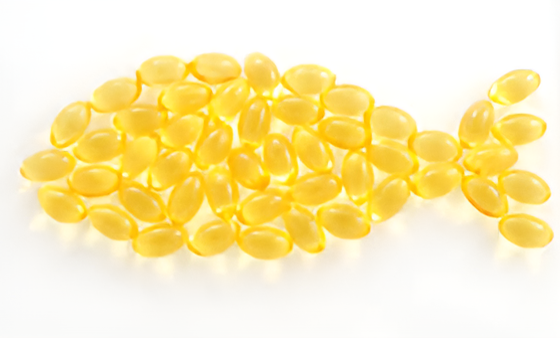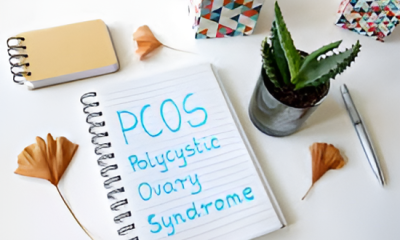Body and Health
Low Blood Pressure Fixes You Can Try Today
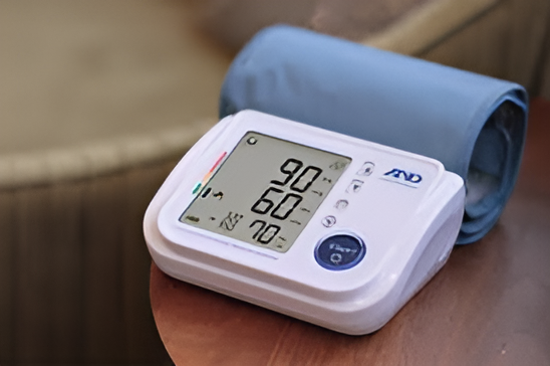
Low blood pressure or hypotension may make you feel weak, fatigued, or lightheaded throughout the day. Although it is not necessarily bad, experiencing recurring symptoms will affect your everyday life and energy. Everyone only thinks about having high blood pressure being a problem, but hypotension has potential issues if overlooked. The good news is you can manage low blood pressure with simple daily habits. This guide explains how hypotension works and provides practical tips to operate it safely and naturally.
What Is Low Blood Pressure and Why It Happens
Low blood pressure occurs when the force of your blood pushing through your arteries drops below normal levels. This means that your brain and body may not receive enough oxygen or nutrients, which can cause dizziness, fainting, or even blurred vision. On occasion, dehydration, skipping meals, or standing up quickly can lead to hypotension. Hypotension can be brought about by some medicines, infections, or illness of the heart as well. It is knowing the cause that is the start of selecting the correct, best type of treatment or way of life adjustment for your case.
Drink More Water to Stay Hydrated
Water helps keep your body’s blood volume level constant and keeps your blood flowing well throughout your body. If you are dehydrated, your blood pressure will drop, and you’ll become dizzy or tired. At least 6 to 8 glasses of water must be drunk daily. More must be taken in a hot environment or following exercise. A pinch of salt or oral rehydration solution must be ingested if you sweat a great deal. Good hydration is one of the simplest and most effective means of maintaining constant blood pressure.
Consume Small, Regular Meals During the Day
Consuming small meals several times a day may help avoid sharp declines in blood pressure during meals. Large meals, particularly ones rich in carbs, may lead to blood rushing to your stomach and away from other areas of your body at times. This can cause low energy or dizziness. Instead of eating three large meals, try to have five or six small meals a day. Include some wholesome snacks like fruits, nuts, or whole-grain crackers to offer constant energy levels and a healthy digestive system.
Add a Little More Salt to Your Diet (But with Caution)
While high blood pressure can benefit from a reduced amount of salt intake, low blood pressure may require a slight increase in salt intake. Salt contains sodium, which increases blood pressure by pulling in extra water into your body. But use salt sparingly and do not overuse it. Use iodized salt and sprinkle a little on your food if your doctor recommends it. Avoid salty junk foods that damage your heart. Always see a doctor to increase your salt intake, especially when you have kidney disease or heart issues.
Stand Up Slowly and Carefully
If you get dizzy when you quickly stand up, you may have orthostatic hypotension, a type of low blood pressure. This happens when your body cannot adjust as quickly when you change positions. Stand up slowly from a chair or out of bed to avoid this. Sit up and wait a few seconds first before standing. When exiting bed, swing your legs off and breathe deeply before standing up. These tiny habits can prevent dizziness or falls due to rapid changes.
Wear Compression Stockings if Necessary
Compression stockings are firm socks that compress your legs to push blood back toward your heart. They’re usually for people with circulation problems or pooling of the blood in the legs. If your physician recommends them, they can stop your blood pressure from dropping when you get up. Socks such as these are often easy to wear throughout the day and may make a big impact on how firm and energetic you feel. Be sure you get the correct size and type that will fit you.
Avoid Alcohol and Limit Caffeine
Alcohol will tend to make your blood vessels widen, which lowers your blood pressure even more. This will lead to dizziness or fatigue, especially when the sun is warm or you have not eaten. Try to avoid alcohol if already suffering from low pressure. Though caffeine will raise blood pressure for a short while, excessive consumption of coffee or tea can lead to dehydration, and therefore aggravate the condition. Have a limited amount of coffee in the morning, but consume more water and healthy fluids throughout the day.
Include Nutrient-Rich Foods in Your Diet
A diet with plenty of vitamins and minerals can keep a healthy reading of your blood pressure. Consume foods with high content of vitamin B12, folate, and iron, as they aid in making red blood cells and healthy circulation. Good foods include leafy greens, eggs, dairy products, fish, and whole grains. Sweet potatoes and bananas also benefit because they contain potassium, which helps regulate fluid balance in the body. Proper eating not only reduces blood pressure but leaves you more energetic throughout the day as well.
Talk to a Doctor About Symptoms
If your blood pressure does not increase or your symptoms still linger, it is essential to talk with a doctor. They may take your blood pressure over time or a blood test to determine why. Dizziness due to hypotension is at times a side effect of a medication or an underlying illness. Your doctor can help you make a plan that involves food in moderation, an appropriate level of activity, and possibly treatments. Don’t ever ignore repeated dizziness, weakness, or fainting spells.
Stay Steady with Simple Habits
Low blood pressure is aggravating, but impossible to manage. With increased water consumption, wise food intake, and minor lifestyle changes, you can maintain your energy levels and reduce the frequency of dizziness spells. Listen to your body, move slowly, and take your physician’s advice whenever necessary. With some precautions every day, you can enjoy a stable blood pressure and live life each day with more energy and self-confidence.
Body and Health
Fish Oil: Unlocking Benefits Beyond Heart Health
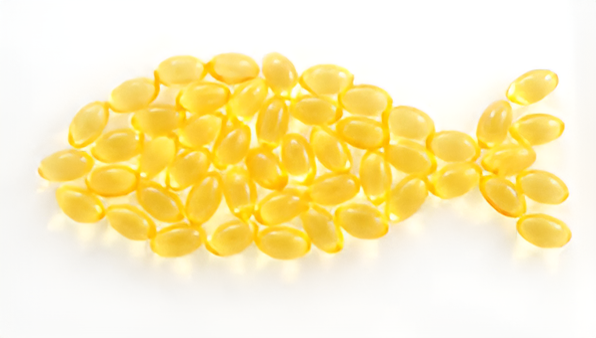
Fish oil is a supplement highly recognized for its high concentration of omega-3 fatty acids. Most people take it for heart health or for reducing inflammation. It has many surprising benefits that go beyond what you know. If you take fish or supplements regularly, knowing these can aid you in enhancing your health naturally. In this blog post, we will discuss the shocking advantages of it and how it benefits your body in several ways.
What Is Fish Oil?
Fish oil is extracted from the body fat of fatty fish such as salmon, mackerel, sardines, and anchovies. It contains two major types of omega-3 fatty acids: EPA (eicosapentaenoic acid) and DHA (docosahexaenoic acid). These are essential fatty acids, so your body can’t make them. EPA and DHA promote brain function, heart well-being, and anti-inflammation. Although eating fatty fish provides these nutrients in their natural form, supplements enable many to simply meet their omega-3 needs.
Fish Oil and Heart Health
One of the best-known benefits of fish oil is its support for heart health. Scientific studies have found that omega-3s can actually reduce triglyceride levels, reducing the risk of heart disease. It also reduces blood pressure and prevents blood clots. They work together to protect your heart and reduce your chances of heart attack and stroke. Taking it daily will keep your cardiovascular system in top shape and your blood vessels healthy.
Surprising Brain Benefits of Fish Oil
Fish oil doesn’t just benefit the heart but also the brain. DHA, one of the omega-3 fatty acids, is a vital building block of the brain and eyes. It according to researchers, can improve memory, concentration, and mood. It even decreases symptoms of anxiety and depression in some studies. That makes it a very effective mental health supplement. Taking it can enhance brain function and help you cope with stress more effectively.
Fish Oil for Joint and Skin Health
Few are aware that fish oil helps to lessen joint pain as well as enhance the health of skin. Its anti-inflammatory property reduces stiffness and swelling of the joints. Individuals with arthritis feel better after using fish supplements on a regular basis. Furthermore, omega-3s assist with skin hydration and the relief of dryness. It also has the added advantage of possibly enhancing conditions such as eczema and psoriasis by reducing inflammation and enhancing the integrity of the skin’s barrier. Daily supplementation of it preserves both joint mobility and healthy, vibrant skin.
Fish Oil and Immune System Support
A strong immune system defends your body against disease and infection. It enhances immunity by controlling inflammation and supporting the function of white blood cells, which fight disease-inducing agents. Regular consumption of it will help you recover faster from the flu and reduce infection rates. Through proper immune response, fish oil enhances general well-being and increases resistance.
How to Incorporate Fish Oil into Your Diet
Eating fatty fish such as sardines, mackerel, salmon, and trout two to three times a week can provide the benefits of fish oil. However, if you do not eat fish regularly, supplements are an easy way out. If you plan on taking a supplement, select good products that have been purified to remove mercury and other impurities. It is also advisable to take the prescribed dosage to lower the chances of side effects. Always consult your physician prior to taking any new supplement.
Possible Side Effects and Precautions
Fish oil is generally safe for all, but it can cause mild side effects such as a fishy taste, indigestion, or nausea. Taking extremely high doses can pose the risk of increasing bleeding risk, especially if you consume anticoagulant drugs. It consumption should be discussed with a physician in pregnant and breastfeeding women. Choosing well-established brands ensures purity and reduces the risk of contamination. Remembering these precautions provides you with the opportunity to enjoy it in safety.
Why You Should Use Fish Oil
Fish oil has many advantages you may not be aware of. It’s not solely concerning heart health; it helps the brain, soothes joint pain, improves skin health, and boosts your immunity. Adding it to your diet is a natural, effective method for improving overall wellness. Whether you prefer eating fatty fish or supplements, increasing omega-3s in your diet can bring long-term benefits to your health. Start supplementing with it today and experience these amazing advantages for yourself.
Body and Health
PCOS Explained: What It Is and How to Manage It Naturally
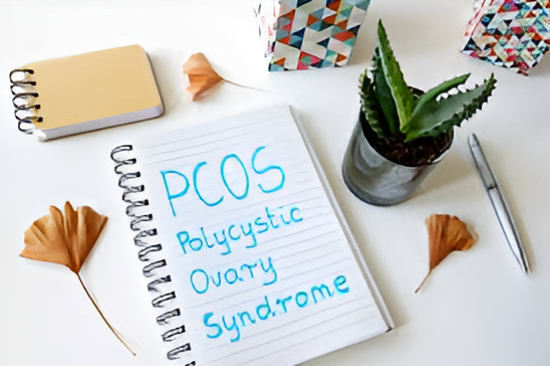
PCOS stands for Polycystic Ovary Syndrome and is a very common hormonal disorder that affects millions of girls and women around the world. It usually begins during the teen years and can persist into adulthood. Many individuals are not aware they have it until they have issues with their periods, weight, or conceiving. The good news is that PCOS can be managed nicely with diet, lifestyle changes, and medication.
Learning About PCOS: What It Is
PCOS creates a hormone imbalance in people who have ovaries. The body is secreting more androgens—or “male hormones,” as they are also known—than it should be. This can lead to problems such as irregular periods, acne, excessive hair growth, and even small cysts on the ovaries. These are not harmful, but they do create changes in the hormones.
Why Does PCOS Happen?
Doctors are still trying to find the cause, but there are several factors that seem to be at play:
Insulin resistance occurs when several areas of the body are not able to use insulin, causing the body to produce more insulin. This can drive androgen levels up.
Genetics: PCOS is hereditary. If your mother or sister has it, you are likely to get it too.
Inflammation: Low-grade body inflammation may lead to the ovaries producing more androgens.
It’s often a mix of these, not one alone.
Common Symptoms to Watch Out For
PCOS has diverse symptoms. Some women only get one or two, though many experience many. Be on the lookout for:
Irregular or missing periods
- Jawline acne
- Excessive facial or body hair
- Scalp hair loss
- Weight gain or inability to lose weight
- Dark marks on the neck or underarms
- Trouble getting pregnant
- Mood swings or stress
If you notice a few of these signs, you should get a check-up from a doctor.
How Is PCOS Diagnosed?
There is no specific test for PCOS. Doctors usually look for at least two of the three below:
- Irregular or absence of periods
- Higher androgen levels
- Cysts appearing on an ovary ultrasound
They can also do blood work to check for hormone and insulin levels.
How to Naturally Treat PCOS
PCOS cannot be cured, but it can be managed with the right approach. Small daily modifications can make a big difference.
1. Have a Healthy Diet
Dietary intake has a significant role in managing PCOS. Go for food that is:
High in fibre (like oats, quinoa, broccoli)
Low in processed sugar (avoid soft drinks and pastries)
Adequate in lean proteins (chicken, tofu, beans)
Rich in healthy fats (avocado, olive oil, nuts)
Breaking up meals into smaller amounts but eating more frequently can also keep blood sugar levels steady.
2. Move Your Body Every Day
Exercise lowers blood sugar and increases insulin resistance. Exercise also reduces stress and helps maintain healthy weight. Aim to:
30–45 minutes of exercise most days
A mix of cardio (walking, dancing) and strength training
Fun activities such as swimming or biking
Consistency is more important than intensity.
3. Obtain and Retain a Healthy Weight
Wafer thin is not necessary. Yet, even cutting 5–10% of weight can regulate hormones and revive periods. Do not crash diet. Rather, concentrate on gradual, healthy habits that you can sustain.
4. Lower Stress Levels
Stress elevates cortisol levels, which may hamper hormone balance. Lower stress by:
Deep breathing
Journaling or reading
Listening to calming music
Spending time with pets or family
Yoga or meditation
Good sleep (7–9 hours of sleep each night) also reduces stress and stabilizes hormones.
5. Investigate a Medical Treatment if Needed
Sometimes lifestyle modifications won’t correct the issue sufficiently. Doctors might prescribe:
Birth control pills to regulate periods
Metformin to improve insulin resistance
Anti-androgen medication to retard hair growth or acne
Fertility medications for individuals seeking to conceive
Always adhere to your doctor’s routine. Everyone is unique, and treatment needs to be tailored.
Natural Remedies That May Assist
Certain people take supplements and herbs, but it is always best to consult with a doctor beforehand. Some of the well-known remedies are:
Inositol: Can help increase insulin sensitivity
Spearmint tea: Can reduce excess hair
Omega-3 supplements: Hormone balancing
Vitamin D: Low levels are common in PCOS
Apply these alongside ,not instead of health habits and medical care.
You Can Take Charge of PCOS
PCOS can appear intimidating, especially at first. But with proper care, it is much easier to manage. Make a healthy diet, regular physical exercise, stress reduction, and attention from health providers a top priority. These changes not only eradicate symptoms—but also make your whole body healthier.
You are not alone, and PCOS does not define you. With small steps, you can effect significant changes.
Body and Health
Pregnancy Power: Easy Nutrition Tips for Moms

Pregnancy and breastfeeding are essential stages in a mother’s life. During these times, nutrition is more important than ever. Moms need extra energy, vitamins, and minerals to support their health and their baby’s growth. Good nutrition during pregnancy and lactation helps avoid problems for both mom and child. In this blog post, we’ll explore simple and effective ways to promote nutrition for pregnant and breastfeeding mothers.
Prioritize Balanced Meals with All Food Groups
Pregnant and lactating mothers need meals with a lot of variety. A balanced plate consists of numerous vegetables, fruits, whole grain, lean protein, and healthy fats. These foods provide essential nutrients like iron, calcium, folic acid, and protein. Having balanced meals on a daily basis assists in maintaining energy levels and fetal development. Never skip meals and take regular, colorful plates for every snack and dinner.
Inspire Small, Frequent Meals Throughout the Day
Heavy meals can become cumbersome, especially for a pregnant woman. However, small, frequent meals can help sustain energy levels. They control nausea, avoid heartburn, and prevent lethargy. While breastfeeding, they sustain milk production and also curb hunger. Offer nuts, fruits, yoghurt, or hard-boiled eggs as an in-between meal snack. It offers sustained nutrition and prevents sudden hunger pangs.
Improve Water Intake for Proper Hydration
Water is a must for pregnant and breastfeeding women. It helps in the transport of nutrients, removal of wastes, and production of milk. Dehydration leads to tiredness, constipation, and headache. Pregnant women require a minimum of 8–10 glasses of water daily. Breastfeeding mothers need more. Offer warm water, soup, or flavored water if plain water is too boring.
Include Iron-Dense Foods and Iron Supplements
Iron helps to make red blood cells and avert anaemia. Iron deficiency is a common condition in pregnant women, but it leads to fatigue. Red meat, beans, lentils, spinach, and fortified cereals contain iron. They should be consumed with a little vitamin C (e.g., orange juice) in order to absorb iron more effectively. A doctor may recommend taking supplements of iron.
Make Calcium and Vitamin D a Daily Priority
Calcium helps in the formation of robust bones in the baby and mom. Vitamin D facilitates the absorption of calcium. The foods involved are leafy green vegetables, milk, yoghurt yoghurt, and cheese. Sunlight helps in vitamin D production naturally. In lactation, the body needs more calcium. If sunlight is limited, talk to a doctor about safe supplements.
Don’t Forget Folic Acid and Omega-3 Fats
Folic acid averts birth defects and brain development. It is needed if pregnant early. Leafy vegetables, lentils, beans, and cereals are good sources of folate. The brain and eye development are supported by omega-3 fatty acids, such as DHA. They are from fish, walnuts, flaxseeds, and some fortified eggs or milk. These need to be added in every meal.
Stay Away from Processed Foods and Sugary Drinks
Processed food predominantly contains excess salt, sugar, and unhealthy fats. The fizzy drinks offer no real nutrition and can increase weight. These foods increase the risk of diabetes and heart disease. Teach mothers how to scan food labels and avoid junk foods. Natural homemade food is always the safest for pregnancy and lactation.
Encourage Safe and Moderate Exercise
Nutrition works better when accompanied by activity. Light physical activity, such as walking or stretching, improves digestion, mood, and circulation. It manages weight and eases pregnancy discomfort. For lactating mothers, physical activity enhances energy and reduces stress. Always employ doctor-approved activities. It’s a safe way to support overall well-being.
Respect Cultural Food Beliefs and Practices
Every family may have cultural foods or breastfeeding and pregnancy customs. Respecting them allows for trust and ease. Try to start from the traditional foods and enhance their nutritional value. For example, work in mind for recommending brown rice instead of white rice or reducing sugar in traditional drinks. It’s not changing culture but making the best out of it.
Provide Regular Nutrition Education
Mothers don’t necessarily understand what foods are best for their children. Nutrition education that is disseminated in clinics, at home, or in support groups is very helpful. Use plain language and pictures to explain the importance of proper nutrition. Offer recipe ideas, shopping advice, and meal ideas. Talk gently and refrain from blame. Confidence and better habits are established through education.
Support Emotional Health and Rest
Good nutrition also relies on rest and emotional support. Stress or sleep deprivation can dampen hunger and affect food consumption. Family support, family care, and mental health care are essential. Encourage moms to eat in a quiet place, rest often, and stay emotionally supported. A healthy mind nourishes a healthy body.
Involve the Family in Food Planning
It’s easier with nutrition when the family is involved. Wives, grandmas, and even children can help cook better meals. Family dinners, cooking as a team, and aiding in nap time add up. Educate the whole family about what mom needs to eat while pregnant and breastfeeding. It makes for a healthy and loving environment.
Small Steps, Big Benefits
Good pregnancy and breastfeeding nutrition doesn’t mean fancy food. It’s simply about smart, day-to-day decisions and strong support. Nutritious meals, regular water intake, rest, and family involvement make a big difference in overall health. Supporting moms’ nutrition makes a huge difference in bringing about a healthier tomorrow for mom and baby. Start small—but keep it up—and the reward will be visible in the long term.
-

 Body and Health2 weeks ago
Body and Health2 weeks agoPregnancy Tips for a Healthy & Happy Journey
-

 Healthy food1 month ago
Healthy food1 month agoHealthy Vegan: Fact vs. Fiction
-

 Healthy food4 weeks ago
Healthy food4 weeks agoChia Seeds: Tiny Grains With Giant Power
-

 Healthy food3 weeks ago
Healthy food3 weeks agoFood to Fight Depression and Anxiety: What to Eat to Feel Better
-

 Mind & Soul4 weeks ago
Mind & Soul4 weeks agoThe One-Minute Calm: How Breathing Can Change Everything!
-

 Mind & Soul4 weeks ago
Mind & Soul4 weeks agoUnderstanding Anxiety: A Guide to the Different Types
-

 Personal Development3 weeks ago
Personal Development3 weeks agoSchedule Overload: How to Handle a Busy Life Like a Pro
-

 Body and Health2 weeks ago
Body and Health2 weeks agoFiber in Your Diet: Why It Matters and How to Get More















